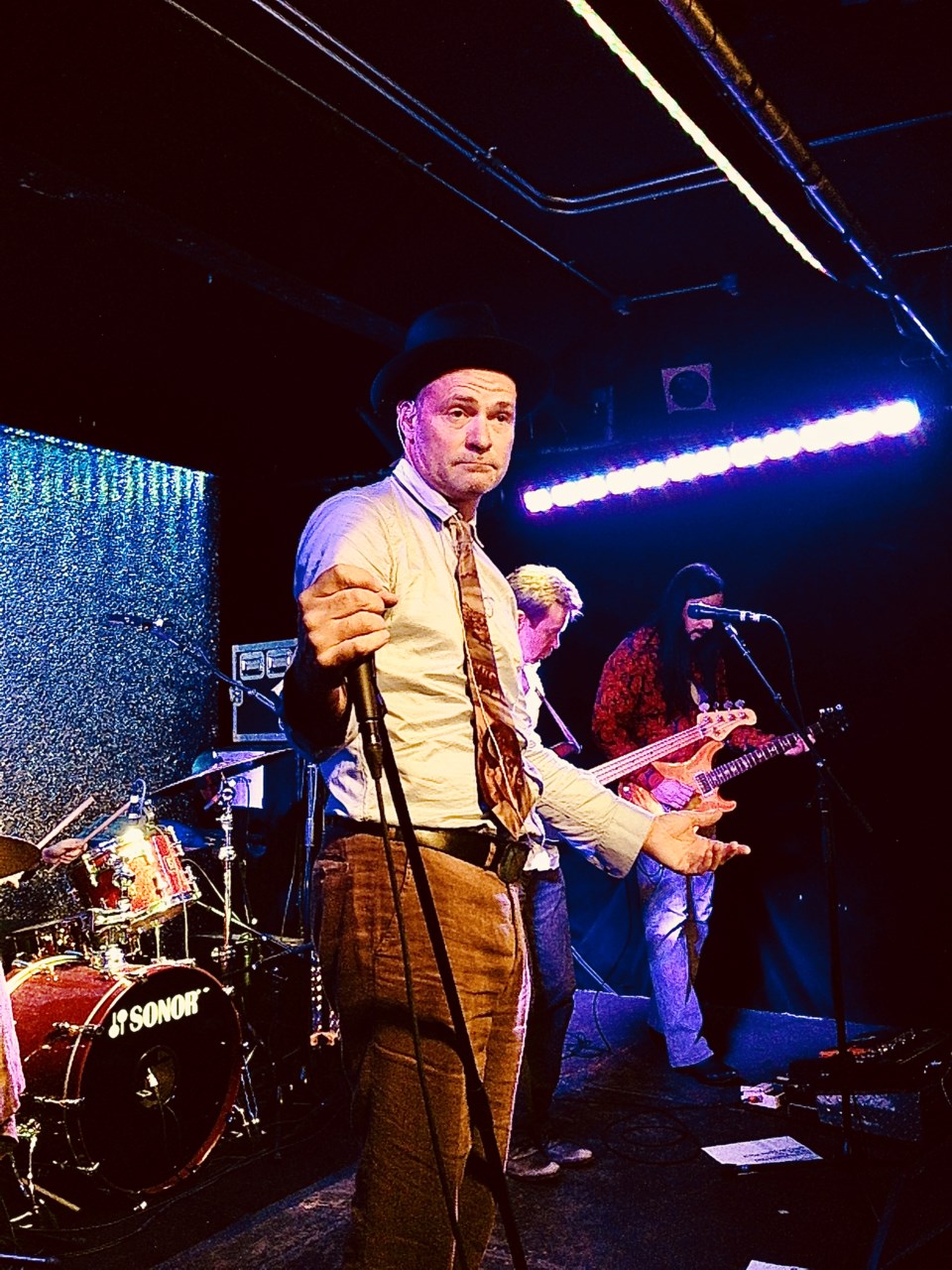On Friday night a few of us were on the subway, heading north from downtown. A few conversations were swirling, mostly about the show we just saw at Massey Hall.
A friend and I were talking about the song choices from Dwayne Gretzky, Toronto’s preeminent cover band who had just finished their debut at the hallowed concert venue when we get to Bobcaygeon. Earlier in the evening, when the familiar G to A minor chord progression rang out, she reached over her boyfriend to grab my hand. We’d seen The Tragically Hip countless times together; they remained our band.
“They do that really well,” she said.
I agreed but immediately paused.
“I still get emotional,” I said.
She agreed, and then similarly paused, as we knew we had to change the subject before it became too much for both of us (and we broke a strict, no crying on public transit rule).
I shouldn’t have been caught off guard by a Bobcaygeon cover – which I’ve seen Dwayne Gretzky play before – or any Hip cover for that matter. Friday, of course, was just three days before the fifth anniversary of Gord Downie’s untimely death from cancer.
Given what we, as a society, have been through in the past five years – specifically in the past two-and-a-half with the COVID-19 pandemic – and what the communities in southern Simcoe County have been through this week in the wake of the tragic killings of Const. Morgan Russell and Const. Devon Northrup in Alcona Oct. 11, it seems almost trivial to commemorate the anniversary of Downie’s death.
Yet, I still feel compelled to toast this absent member in particular, a man I knew from afar and only got to spend a fleeting few minutes in direct contact with. The Tragically Hip were the band that represented a large portion of an entire generation, and in them were people who never really had to face grief before waking up on Oct. 18, 2017, and hearing their hero has died the night before.
Truth be told I’m one of those people. Downie’s death was the first time I had to look at that kind of finality eye-to-eye.
It was the first stage in a “rule of threes” scenario that took place over the next 90 days that I never want to repeat. About a month after Downie died, my journalism career was derailed by two conglomerates taking part in the Canadian media equivalent of trading Pogs in the school yard and then immediately throwing out the Pogs you got, because you realized Pogs were stupid. Then, a month-and-a-half after that, I was rocked to my core when my beloved grandmother succumbed to the dementia that had gradually taken her mind away over the previous few years.
No dress rehearsal, as Downie famously said, and, more importantly, no wrong way to grieve. His death provided me with a blueprint to navigate what I would be feeling over the next few months. I know I wasn’t alone in this.
That’s because, especially in the last year or so of his life, I feel that Downie was teaching Canadians lessons they didn’t realize they needed.
First, recall how sudden Downie’s diagnosis was. There was no time to react and prematurely mourn, only time to move forward and celebrate. I think that showed many of us how we need to be more present in our surroundings and appreciate what’s in front of us. I was lucky enough to see the band five times on their final tour; hundreds of thousands of fans around the world weren’t so lucky, having already seen their final show and not even realizing it.
Then recall how freely he showed his love for his friends and family. Every night before the band went on stage on their final tour, Downie kissed each one of his comrades in The Hip on the lips. At that final show, on national television, the five men who soundtracked cottage weekends and hockey locker rooms for the previous 30 years took a sledgehammer to toxic masculinity by letting their guard down and embracing the love they shared for each other.
Perhaps his greatest legacy is the way he was able to shine a light on the mistreatment of Indigenous peoples by generations of settlers. By telling the story of Chanie Wenjack, Downie was able to show those of us who had been taught to ignore what is happening “up north” that we finally needed to pay attention. The three-or-four days on Residential Schools in Grade 10 history – if that – weren’t good enough.
It’s still problematic that it took a famous white man to get people in Canada to even slightly pay attention, and it’s probably best he didn’t live to see the trust he placed in Prime Minister Justin Trudeau to be the person to fix things hideously let down, but that Downie’s words and passion in his final days have spurred so many people to “do something” can’t be understated or under-appreciated.
He was never going to survive to see a truly reconciled Canada; most people lucky enough to ever see The Hip in concert won’t either. But hopefully, enough of us who have been inspired to do more because of him are setting the right wheels in motion as we truly become a better nation than we have been so far.
Downie often said (and I’m paraphrasing) for a show to be truly great, something special has to happen. You could say the same thing about life. In his final act, of a life where plenty of special things happened, he saved the best for last. His honorary Indigenous name, Wicapi Omani - Man Who Walks Among the Stars – could not be more fitting.
I miss him. I think we all do.



